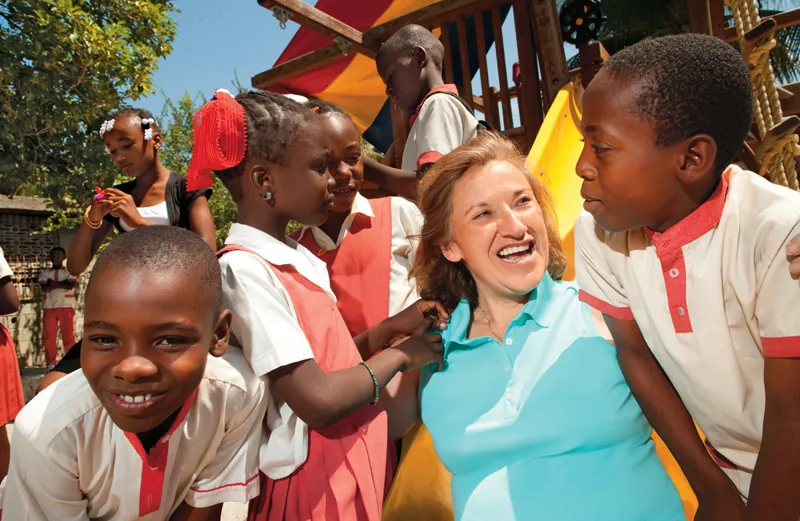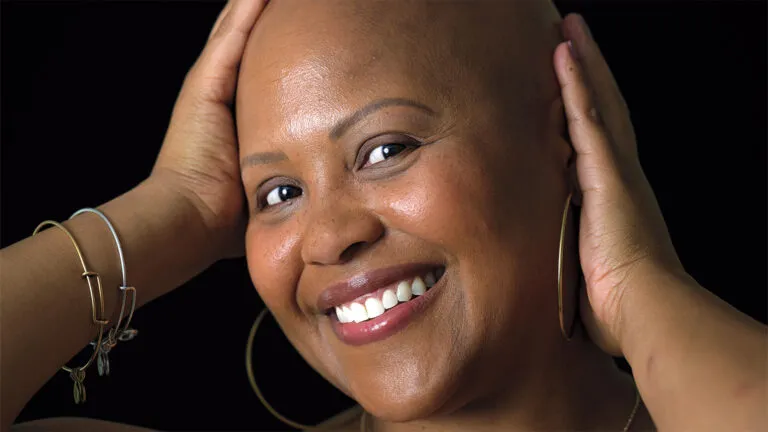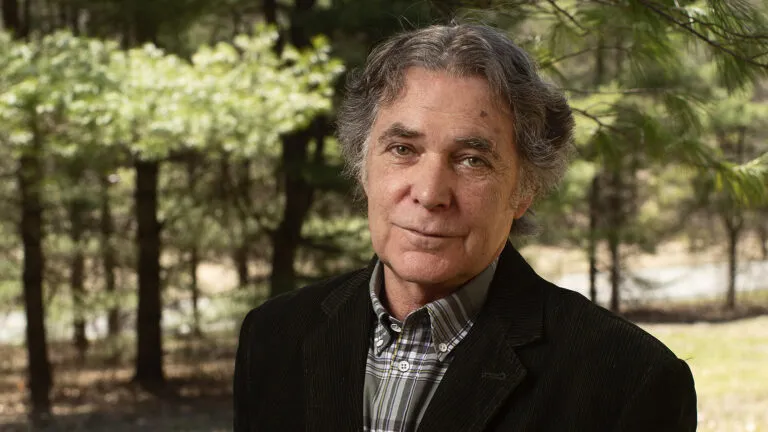Mail lay scattered across the kitchen table. I couldn’t put off sorting through it any longer. I flipped through the envelopes, putting aside the ones addressed to my husband.
It had been over three years since Bob had died from complications after minor surgery. To friends and family it looked like I had moved past the worst of my grief. I took care of my house, socialized, kept up with church committees. On the outside everything appeared to be normal.
But inside I was anything but. I worried I would never get better. Never be myself again. They say grief has no set time limit, but I was so tired of feeling empty and hopeless. My grief was sharp and fresh as ever. It was like a wall of pressure in my chest, crushing my heart.
I snatched up a piece of Bob’s mail and held it out to tear in half. Will this feeling ever go away? I thought–and stopped myself from ripping the envelope to shreds.
The letter was from an organization that funded a Haitian orphanage called My Father’s House. Its founder, Carol Hawthorne, had given a presentation at our church. Bob and I had donated, and Bob ended up on the mailing list to receive the newsletter with updates on the children.
I hadn’t read one since Bob died. But just three months before, in January 2010, the country had been hit by a terrible earthquake. In my depressed state, it hadn’t even occurred to me to wonder whether the orphanage had survived.
I opened the newsletter and was relieved to find out that My Father’s House was still standing. Of course now it was more crowded than ever. At the bottom of the page was an announcement about an upcoming mission trip to visit the orphanage in person. I should go.
The thought wouldn’t leave me. I contacted Carol Hawthorne. “What would I do if I go?” I asked. “Build houses?”
“The Haitian people there are eager to work and they know what they’re doing,” said Carol. “What they need are raw materials, and we provide them. We also visit with the children. We go to clinics and schools, pass out supplies. You’ll be very busy, I promise!”
I reserved a spot but didn’t mention it to any of my friends. Just a few weeks later, I was at JFK with seven strangers, waiting to board a plane to Port-au- Prince. Even after takeoff I wasn’t really sure of what I was doing.
In Haiti we were met by Pastor Ronald Lefranc, the director of My Father’s House. We piled into an old school bus and drove over bumpy roads full of potholes, gravel and mud.
We passed women wobbling under the weight of huge water buckets balanced on their heads. Piles of refuse littered the landscape, and the land was dotted with ragged tents and tin shanties.
Finally we pulled up to the orphanage. A crowd of children–52 in all–rushed up to greet us. I couldn’t understand the words of the welcome song they sang in Creole, but with the smiles on their faces I didn’t need to. Each child planted a big kiss on my cheek.
Carol and Pastor Ronald led us into the main building. “What are those over there?” I asked, pointing to a collection of flimsy tents. “Is there not enough room in the building for all the children?”
“We have the room,” said Pastor Ronald. “But many of these children came here after the earthquake. They still don’t feel safe sleeping under a roof.”
There was no sign of fear in the playroom inside. I played dolls, patty-cake and beauty parlor. Children I’d just met presented me with pictures they’d drawn and letters written in Creole. They’d lost so much, yet were so joyful.
In the evening the children gathered in the dining room for devotions. They passed a Bible between them, taking turns reading aloud. One of the older children stood up to speak and then they all joined in song. The words were strange, but the tune sounded familiar. “‘Amazing Grace!’” I said.
Carol grinned. “I’ll bet you’ve never heard it sung in Creole!”
The children recited the Lord’s Prayer and settled down. In the silence, a quiet buzzing noise began. I looked around for its source. Had some tropical insects gotten into the place?
Then I realized the buzz came from the children themselves as they prayed, each one in a whispered, intense conversation with God.
As Carol had promised, it was a busy week. We drove up to villages in the mountains and visited medical clinics. We passed out toothpaste, soap and special buckets that filtered out bacteria from the water. There was so much to do I had no time to dwell on my own feelings.
But one afternoon toward the end of the week, sitting in the playroom of the orphanage, I felt like something was missing. It was as if something I’d carried for a long time was gone. What was it?
One of the girls handed me a note in Creole. A translator read it out to me: “Dear Michelle,” it said, “I am very happy that you came to Haiti. I think that you are very happy too.”
Tears sprang to my eyes. She was right. I was happy. The wall of pressure in my chest had disappeared.
My love for Bob was there, strong as ever. I still missed him and I knew I always would. But I was myself again. The children here did more than distract me from my grief. They taught me through example that I could feel joy in spite of it.
The next day the children sang us a farewell song. I kissed each of them good-bye. “Are you coming back?” one of the girls asked.
“Yes,” I said. And I would, as often as I could. Because My Father’s House was filled to overflowing with little angels who’d given me far more than I could give back in return.
Learn about relief organizations that are making a difference in Haiti!
Download your FREE ebook, Angel Sightings: 7 Inspirational Stories About Heavenly Angels and Everyday Angels on Earth






